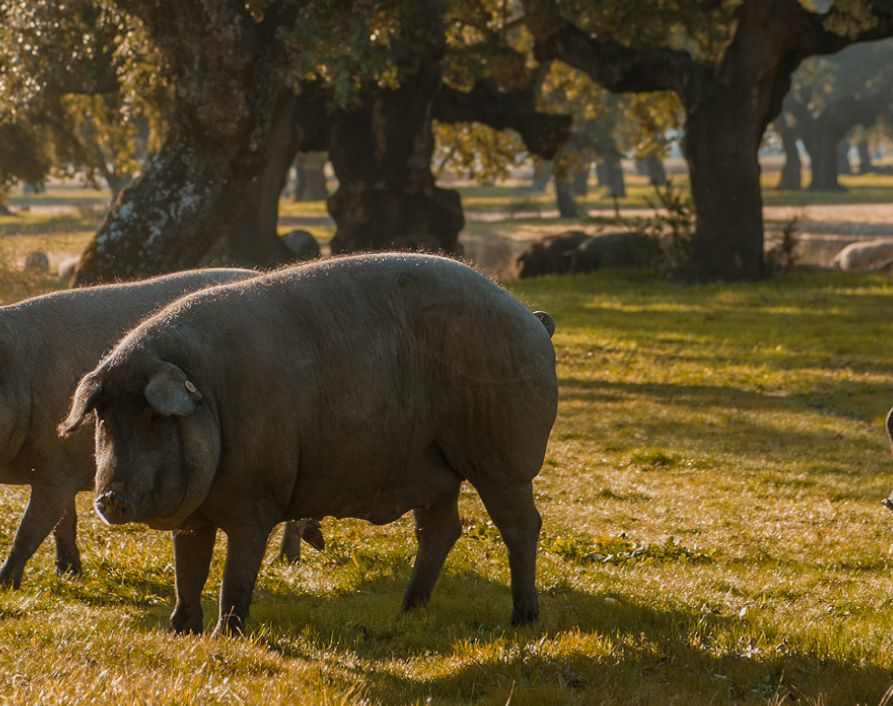
Biodiversity
The Iberian pig, a unique and emblematic breed, contributes significantly to biodiversity in the region where it is raised.

Genetics
The Iberian pig has particular genetics that distinguish it from other pig breeds. This genetic diversity is crucial for the preservation of the species and its adaptation to different environments.

Diet
The diet of the Iberian pig also contributes to its biodiversity. These animals feed mainly on acorns, grasses, roots and other natural resources that they find in the pastures. This varied diet not only influences the flavor and quality of their meat, but also promotes plant diversity in the ecosystems where they graze.
Impact on the ecosystem
The presence of the Iberian pig in the pastures has a positive impact on local biodiversity. Their foraging behavior, such as turning the soil in search of roots and dispersing seeds through their excrement, contributes to the natural cycle of vegetation regeneration and the maintenance of plant diversity in these ecosystems.
In summary...
In summary, the biodiversity of the Iberian pig is manifested in its genetics, habitat, diet and its impact on the ecosystem. This breed of pig is not only a fundamental element in the gastronomy and culture of the region, but also plays a crucial role in the conservation and promotion of biological diversity in the ecosystems where it is raised.